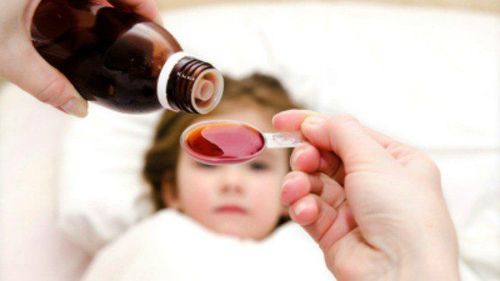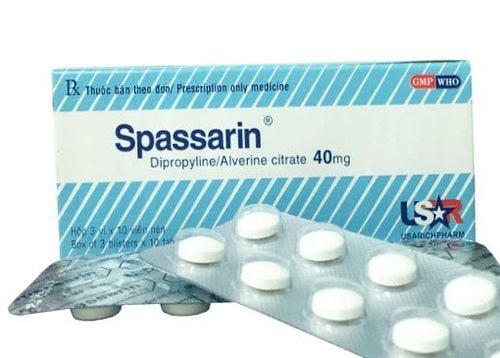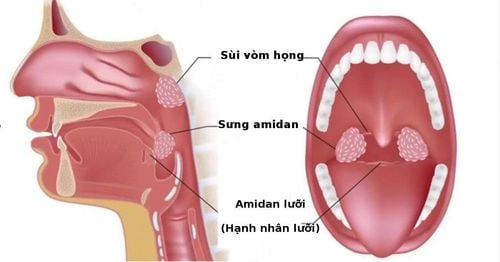This is an automatically translated article.
The article is expertly consulted by Assoc. Dr. Dr. Huynh Thoai Loan - Head of Pediatrics - Neonatology Department, Vinmec Central Park International General Hospital. Uncle is one of the leading experts in Pediatrics - Neonatology in Ho Chi Minh City with nearly 30 years of experience in examining and treating diseases of pediatric endocrinology, pediatric nephrology and other pediatric - neonatal problems.Crying is a way for babies to communicate with their parents when they can't speak yet. The reason for saying this is because the baby's cry, especially when the baby is unusually fussy, shows that the baby is hungry, sleepy, thirsty or sick and other emotions. But to guess the child's meaning through the baby's cry, not all parents know.
1. Common causes of crying babies
Hungry baby This is the first thing parents need to think about when a baby cries. When hungry, children often cry and are accompanied by the following signs: fussiness interspersed with movements of thumb sucking, mouth swishing. When the baby is finished feeding, after a short period of time the baby cries again, this may be a sign that the baby has not been fed enough.
Baby diapers are dirty, too wet due to urine and feces Babies will signal to parents that they want to change diapers by crying but the crying is usually normal, nothing special, sometimes screaming, tears shed. This cause can be solved by checking the baby's diaper, it's best for parents to change the baby's diaper every 2-3 hours to avoid red diaper rash from the baby's diaper and change it immediately if the baby poop. diaper.
Sleepy children For older children and adults, when they are sleepy, they can sleep anywhere and anytime. But with children, it is different, when they are sleepy, they often cry and sleep badly, rub their eyes with their hands, scratch their heads and scratch their ears, some babies may suck their thumbs, initially cry relatively softly, if the surrounding is too noisy If the baby can sleep, the baby will cry louder and more continuously. At this time, to comfort the baby, just cuddling the baby will stop crying and sleep.
Children want to cuddle, want to be cuddled Many parents think that holding and hugging their baby too much is easy to damage the baby, but in the first months of life, babies need a lot of cuddles from their parents. Therefore, when a child wants to be hugged, he or she will have the following symptoms: crying at high and low times, there may be no tears, limbs dancing around, eyes looking left to right.
The baby has abdominal discomfort: bloating, colic or other problems When the baby has colic, the baby will often cry after feeding, so much so that it can't be comforted, the baby's crying often appears. for at least 3 hours per day, 3 days per week and for at least 3 consecutive weeks.
Sometimes stomach bloating can also be the cause of your baby's discomfort and crying. When you suspect that your baby has gas, you can try some simple measures such as placing your baby on his back, holding his legs and moving him like a bicycle.

Too cold or too hot When babies feel cold or hot, they will cry, but when they are cold they will cry harder when they are hot. Babies cry every time they change clothes or after bathing, this is a sign that they may be feeling cold.
Due to the child's panic This panic situation of the child can be caused by loud noises, light or dark night... At this time, the child is crying and screaming, the whole body is moving around.
Babies cry because teething When teething, babies always feel pain and cry a lot. Therefore, parents need to know to handle and help reduce pain for children during this period. Common symptoms when a child is teething, such as touching, brushing, gnawing, chewing, and like to put things in the mouth, is likely to be uncomfortable because of teething.
Children with pain, discomfort disorders or diseases in the body Children crying intermittently, accompanied by vomiting, bloody stools, are children with the possibility of intussusception. Children who cry continuously, sometimes stopping for a moment, then continuing, accompanied by vomiting, may have a disease in the brain or meninges. Children crying, not fast, not slow, even, pale face, sweating, vomiting, diarrhea, do not touch the abdomen, if touched, cry louder than the child is likely to have acute enteritis. Digestion malfunction, parasites (worms) raging. Children who cry hoarsely, cry continuously, especially at night, have difficulty breathing, and have fever and stop feeding are likely to have acute tonsillitis. Children cry with normal tones, children are in a restless state, no matter how they comfort them, they have headaches, stuffy noses, and flu. Children who cry and then wheeze are likely to have pneumonia. Crimson crying babies: this is a very dangerous sign that can cause death in children, especially those after birth. This is an indication that the child is at very high risk for a total abnormal return of the pulmonary vein on the heart with obstructive complex cardiovascular disease. Children who cry weakly, mixed with intermittent groans are likely to have pneumonia and heart failure, and must be closely monitored. Children crying restlessly, accompanied by fever, shaking their head, rubbing their ears, pressing their ears with their hands, and crying more intensely, the children are likely to have otitis media. Children who cry all night, are afraid, sweat a lot, are likely to have early stage rickets. Children crying before sleeping is usually a child with pinworms, crawling out from the anal opening, causing itching and discomfort. Children crying when urinating are usually children with urinary tract infections, can see the urethral mouth infected, red. If the child cries, refuses to suckle, every time he latches on to the breast, he cries, which means that the child may have swollen gums and stomatitis, so they cannot suckle. Children crying violently, always squirming, grabbing things to hug, children are likely to develop acne, due to hot humidity, itching, discomfort. Babies who cry after having a bowel movement are usually babies with anal fissures.
Trắc nghiệm: các chỉ số cần chú ý về sự phát triển thể chất của trẻ
Chiều cao, cân nặng của bé ở từng giai đoạn nên là bao nhiêu là bình thường, bao nhiêu là bất thường? Cùng ThS.BS Ma Văn Thấm điểm lại xem bạn đã nắm được các chỉ số phát triển thể chất của bé chưa nhé!The following content is prepared under supervision of Thạc sĩ, Bác sĩ y khoa, Ma Văn Thấm , Nhi , Phòng khám Đa khoa Quốc tế Vinmec Dương Đông(Phú Quốc)
2. What to do when the baby is fussy

Try to stay calm: A calm attitude before a baby's cry will help parents be awake to recognize the messages that the child wants to convey, and need to comfort the child with a gentle voice. When feeling insecure, children often want to be petted by their parents to calm down. Stroking can help relieve stress and create a sense of security, at which point the baby will calm down and stop crying. Parents should try to hold the baby more, this can reduce the baby's crying. Arrange the day's activities according to your child's schedule: This means that if your baby often cries at a certain time in the evening, don't schedule anything at this time, consider having dinner before that time. Children often cry. When parents feel hopeless because their baby can't help but cry, it leads to negative emotions. Calmly place the child in a safe place and move away a bit. This helps parents or caregivers to stabilize their spirits and coax the child to be more effective afterward. When feeling that the child has abnormal signs, please contact the doctor for advice or take the child to a medical facility. Based on the baby's cry, parents can guess what their child means when the child can't speak yet. Therefore, parents need to understand clearly to take care of their children in the most effective way, especially when the child is sick and cannot tell the parents. Infants from 1 to 6 months of age are generally susceptible to respiratory diseases, respiratory infections and gastrointestinal infections... leading to day and night crying. To protect children's health, parents should do well to exclusively breastfeed their babies for the first 6 months (if possible) and vaccinate on schedule. As soon as a child shows symptoms such as anorexia, fatigue, and crying, the child needs to go to the hospital to be consulted by a specialist for monitoring and treatment. The pediatric department at Vinmec International General Hospital is the address for receiving and examining diseases that infants and young children are susceptible to: viral fever, bacterial fever, otitis media, pneumonia in children. ,... With modern equipment, sterile space, minimizing the impact as well as the risk of disease spread. Along with that is the dedication from the doctors with professional experience with pediatric patients, making the examination no longer a concern of the parents.
Please dial HOTLINE for more information or register for an appointment HERE. Download MyVinmec app to make appointments faster and to manage your bookings easily.















